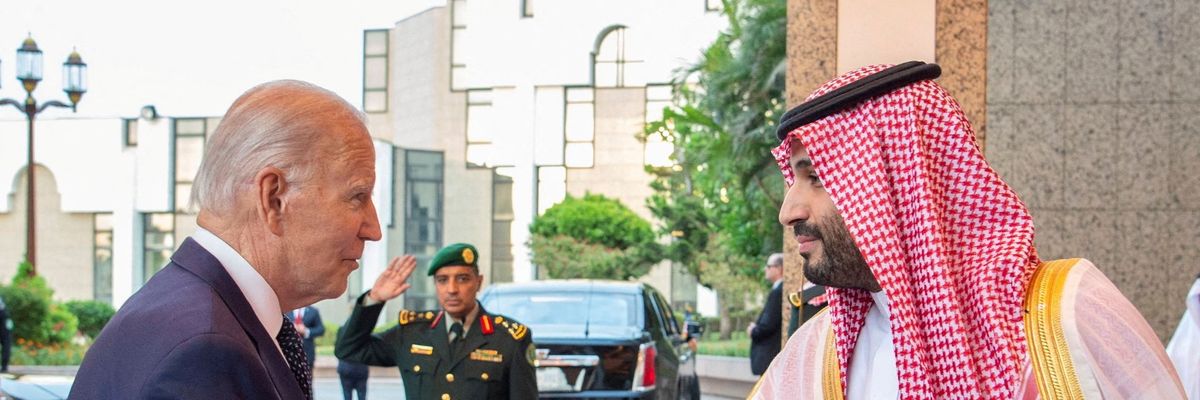The Biden administration has moved to grant Saudi Crown Prince Mohammed bin Salman sovereign immunity for his role in ordering the 2018 murder of Washington Post columnist Jamal Khashoggi in Istanbul.
The government’s determination is nonbinding and remains to be reviewed by the judge overseeing the lawsuit brought against MBS by Khashoggi’s fiancee, Hatice Cengiz, and the organization Democracy for the Arab World Now, or DAWN. However, it represents the latest signal that the Biden administration will not hold MBS accountable for the slaying and dismemberment of a U.S. resident.
In September, Saudi Arabia announced that the crown prince would take on the role of Prime Minister of Saudi Arabia, a post ordinarily held by the king. The decision appears to have been primarily motivated by the pending U.S. lawsuit, because, as prime minister and thus head of government, MBS is shielded from prosecution.
The crown prince’s new status as prime minister arguably grants him sovereign immunity automatically. But the announcement is disappointing in that it reflects a pattern of the U.S. government failing to hold MBS accountable in any way.
President Trump actively thwarted Congressional efforts to try to punish Saudi Arabia. The global outcry provoked by Khashoggi’s brutal murder amplified existing concerns about the U.S. role in supporting the violence and starvation wreaked by the war on Yemen that MBS launched as defense minister in 2015. Congress did successfully end mid-air refueling for Saudi and Emirati warplanes dropping bombs on Yemen. But Trump vetoed a Congressional War Powers Resolution that would have ended all U.S. involvement in the Saudi-led war.
Initially, it seemed that Biden would finally rethink the U.S.-Saudi relationship. Biden had campaigned on making MBS a “pariah” for his human rights abuses. Yet since taking office, Biden has consistently prioritized continuity in the U.S.-Saudi relationship.
In February 2021, soon after taking office, the Biden administration declined to hold MBS accountable for Khashoggi’s murder, despite releasing the intelligence report that concluded that the MBS was indeed responsible.
More recently, Biden reversed his stated commitment not to meet with the crown prince when he flew to Jeddah in July and fist-bumped the royal in hopes of encouraging the kingdom to pump more oil to offset high prices caused by sanctions on Russia. Instead, OPEC+, the oil cartel dominated by Riyadh, announced a production cut of 2 million barrels per day in October. This sparked outrage in Washington, especially among Democrats, who feared for their Congressional majorities with midterms looming.
Although the administration initially promised “consequences” for Saudi Arabia, Biden’s national security advisor later stated that the relationship would be re-evaluated in a “methodical, strategic, effective” way. Meanwhile, the initial outrage from Congress appears to have dissipated, especially after the Democrats performed better than expected in the midterms.
Is MBS fully rehabilitated? Theoretically, MBS could return to the United States, if he chose, whereas previously there remained a question of whether doing so would put him in legal jeopardy. MBS has yet to return to the UK, even missing the funeral of Queen Elizabeth II, an event that drew monarchs and crown princes from all the other Arab kingdoms.
It seems much of the world has decided to overlook MBS’ responsibility for the gruesome murder, not to mention his many other human rights abuses. Although the administration’s latest move is hardly surprising, it does beg the question: what would it take for Washington to finally rethink its relationship with Riyadh?
















